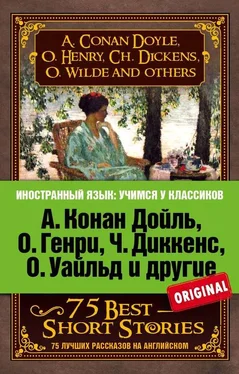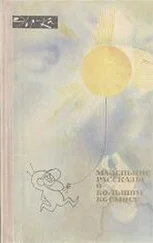‘You must go in the skiff, then. It’s the only way.’
‘And let him find you? And hear my oars? Listen – there’s something I must say.’
She flung her arms about him and pressed her face to his.
‘Isabel, just now I didn’t tell you everything. He’s ruined his mother – taken everything of hers too. And he’s got to tell her; it can’t be kept from her.’
She uttered an incredulous exclamation and drew back.
‘Is this the truth? Why didn’t you tell me before?’
‘He forbade me. You were not to know.’
Close above them, in the shrubbery, Stilling warbled:
‘Nita, Juanita,
Ask thy soul if we must part!’
Wrayford held her by both arms. ‘Understand this – if he comes in, he’ll find us. And if there’s a row you’ll lose your boy.’
She seemed not to hear him. ‘You – you – you – he’ll kill you!’ she exclaimed.
Wrayford laughed impatiently and released her, and she stood shrinking against the wall, her hands pressed to her breast. Wrayford straightened himself and she felt that he was listening intently. Then he dropped to his knees and laid his hands against the boards of the sliding floor. It yielded at once, as if with a kind of evil alacrity; and at their feet they saw, under the motionless solid night, another darker night that moved and shimmered. Wrayford threw himself back against the opposite wall, behind the door.
A key rattled in the lock, and after a moment’s fumbling the door swung open. Wrayford and Isabel saw a man’s black bulk against the obscurity. It moved a step, lurched forward, and vanished out of sight. From the depths beneath them there came a splash and a long cry.
‘Go! go!’ Wrayford cried out, feeling blindly for Isabel in the blackness.
‘Oh—’ she cried, wrenching herself away from him.
He stood still a moment, as if dazed; then she saw him suddenly plunge from her side, and heard another splash far down, and a tumult in the beaten water.
In the darkness she cowered close to the opening, pressing her face over the edge, and crying out the name of each of the two men in turn. Suddenly she began to see: the obscurity was less opaque, as if a faint moon-pallor diluted it. Isabel vaguely discerned the two shapes struggling in the black pit below her; once she saw the gleam of a face. She glanced up desperately for some means of rescue, and caught sight of the oars ranged on brackets against the wall. She snatched down the nearest, bent over the opening, and pushed the oar down into the blackness, crying out her husband’s name.
The clouds had swallowed the moon again, and she could see nothing below her; but she still heard the tumult in the beaten water.
‘Cobham! Cobham!’ she screamed.
As if in answer, she felt a mighty clutch on the oar, a clutch that strained her arms to the breaking-point as she tried to brace her knees against the runners of the sliding floor.
‘Hold on! Hold on! Hold on!’ a voice gasped out from below; and she held on, with racked muscles, with bleeding palms, with eyes straining from their sockets, and a heart that tugged at her as the weight was tugging at the oar.
Suddenly the weight relaxed, and the oar slipped up through her lacerated hands. She felt a wet body scrambling over the edge of the opening, and Stilling’s voice, raucous and strange, groaned out, close to her: ‘God! I thought I was done for.’
He staggered to his knees, coughing and sputtering, and the water dripped on her from his streaming clothes.
She flung herself down, again, straining over the pit. Not a sound came up from it.
‘Austin! Austin! Quick! Another oar!’ she shrieked.
Stilling gave a cry. ‘My God! Was it Austin? What in hell – Another oar? No, no; untie the skiff, I tell you. But it’s no use. Nothing’s any use. I felt him lose hold as I came up.’
After that she was conscious of nothing till, hours later, as it appeared to her, she became dimly aware of her husband’s voice, high, hysterical and important, haranguing a group of scared lantern-struck faces that had sprung up mysteriously about them in the night.
‘Poor Austin! Poor Wrayford… terrible loss to me… mysterious dispensation. Yes, I do feel gratitude – miraculous escape – but I wish old Austin could have known that I was saved!’
The Remarkable Rocket (Oscar Wilde)
The King’s son was going to be married, so there were general rejoicings. He had waited a whole year for his bride, and at last she had arrived. She was a Russian Princess, and had driven all the way from Finland in a sledge drawn by six reindeer. The sledge was shaped like a great golden swan, and between the swan’s wings lay the little Princess herself. Her long ermine-cloak reached right down to her feet, on her head was a tiny cap of silver tissue, and she was as pale as the Snow Palace in which she had always lived. So pale was she that as she drove through the streets all the people wondered. ‘She is like a white rose!’ they cried, and they threw down flowers on her from the balconies.
At the gate of the Castle the Prince was waiting to receive her. He had dreamy violet eyes, and his hair was like fine gold. When he saw her he sank upon one knee, and kissed her hand.
‘Your picture was beautiful,’ he murmured, ‘but you are more beautiful than your picture;’ and the little Princess blushed.
‘She was like a white rose before,’ said a young Page to his neighbour, ‘but she is like a red rose now;’ and the whole Court was delighted.
For the next three days everybody went about saying, ‘White rose, Red rose, Red rose, White rose;’ and the King gave orders that the Page’s salary was to be doubled. As he received no salary at all this was not of much use to him, but it was considered a great honour, and was duly published in the Court Gazette.
When the three days were over the marriage was celebrated. It was a magnificent ceremony, and the bride and bridegroom walked hand in hand under a canopy of purple velvet embroidered with little pearls. Then there was a State Banquet, which lasted for five hours. The Prince and Princess sat at the top of the Great Hall and drank out of a cup of clear crystal. Only true lovers could drink out of this cup, for if false lips touched it, it grew grey and dull and cloudy.
‘It’s quite clear that they love each other,’ said the little Page, ‘as clear as crystal!’ and the King doubled his salary a second time.
‘What an honour!’ cried all the courtiers.
After the banquet there was to be a Ball. The bride and bridegroom were to dance the Rose-dance together, and the King had promised to play the flute. He played very badly, but no one had ever dared to tell him so, because he was the King. Indeed, he knew only two airs, and was never quite certain which one he was playing; but it made no matter, for, whatever he did, everybody cried out, ‘Charming! charming!’
The last item on the programme was a grand display of fireworks, to be let off exactly at midnight. The little Princess had never seen a firework in her life, so the King had given orders that the Royal Pyrotechnist should be in attendance on the day of her marriage.
‘What are fireworks like?’ she had asked the Prince, one morning, as she was walking on the terrace.
‘They are like the Aurora Borealis [559],’ said the King, who always answered questions that were addressed to other people, ‘only much more natural. I prefer them to stars myself, as you always know when they are going to appear, and they are as delightful as my own flute-playing. You must certainly see them.’
So at the end of the King’s garden a great stand had been set up, and as soon as the Royal Pyrotechnist had put everything in its proper place, the fireworks began to talk to each other.
Читать дальше
Конец ознакомительного отрывка
Купить книгу












